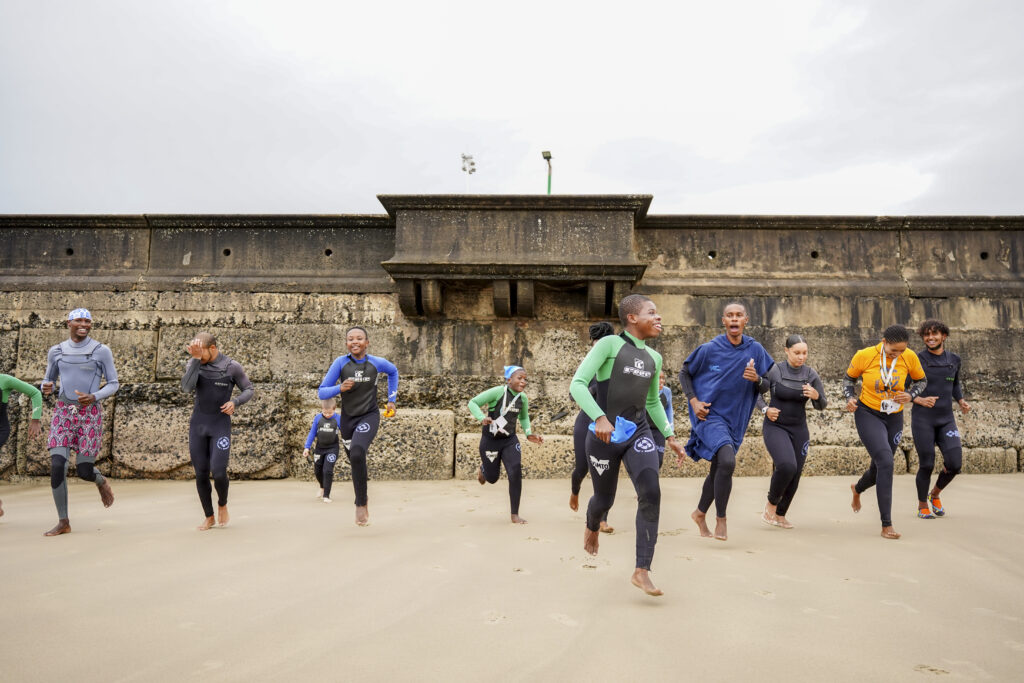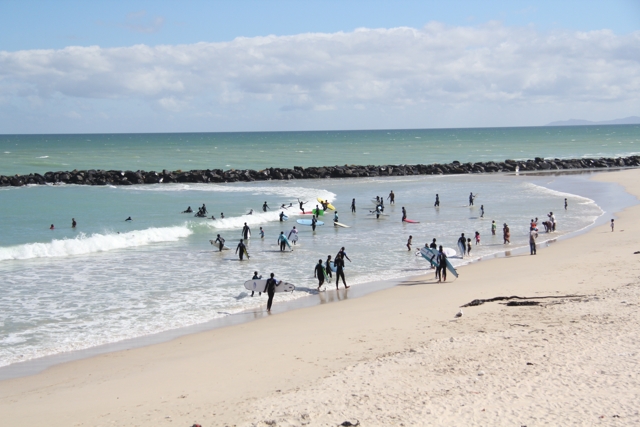Surf Therapy
Incubated and refined over 12 years, W4C has developed a child-friendly, culturally appropriate, community based adolescent mental health prevention/promotion service which is evidence based and effective at reducing toxic stress.
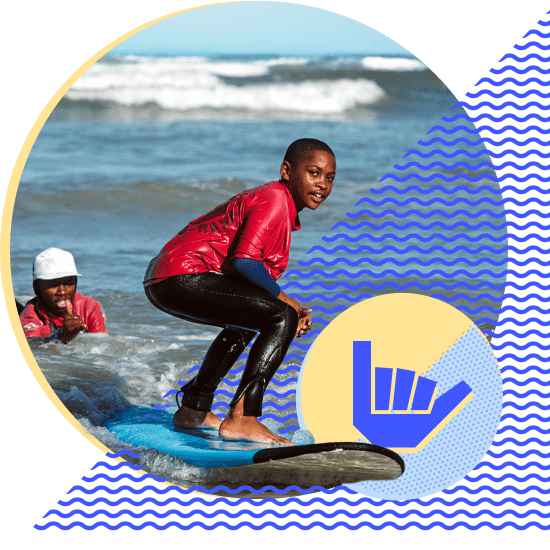
Culturally appropriate mental health services
W4C programmes are based around five key programmatic pillars, designed to accelerate new caring attachments and improve self-regulation skills.
W4C’s Pillar Method has been co-designed with young people living in South Africa and other Low Middle Income Countries and is tailored for trauma-based contexts and the unique mental health needs of communities living in multidimensional poverty.
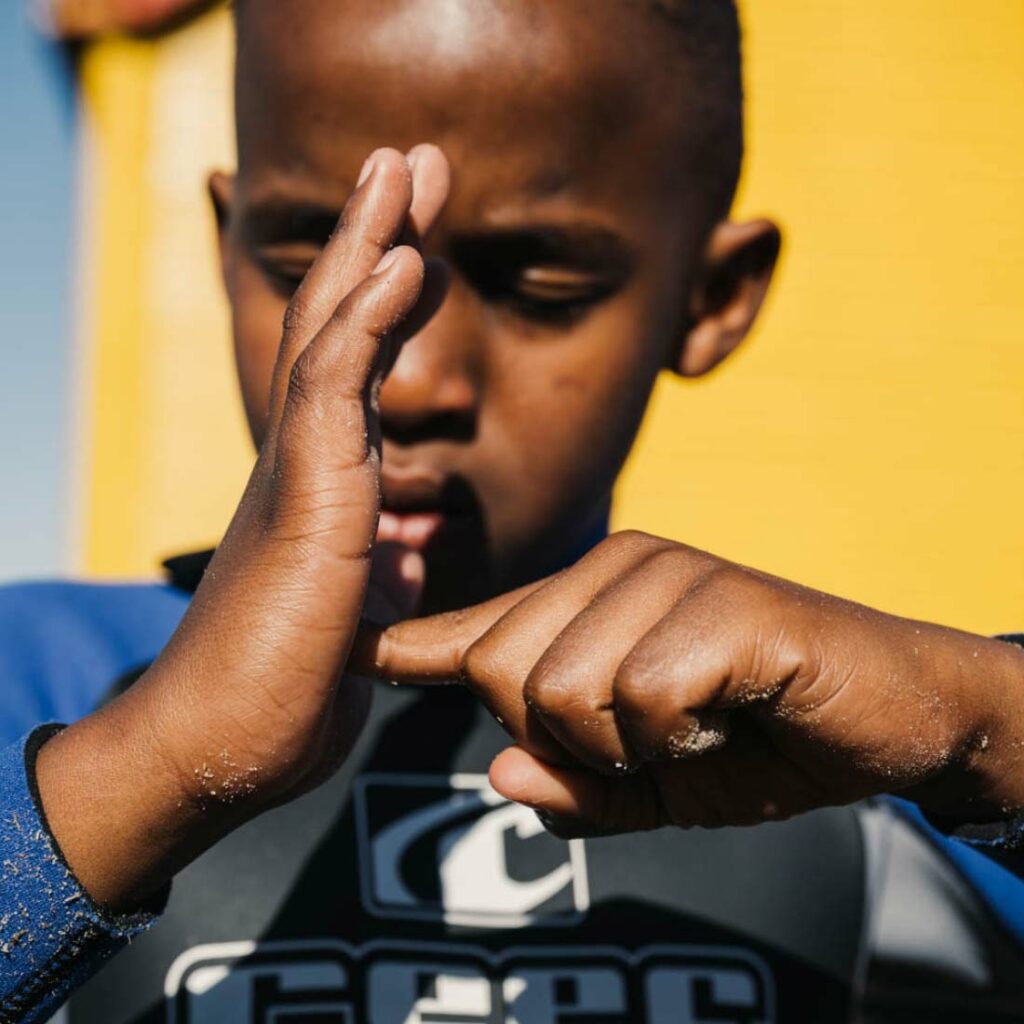
Benefits of Surf Therapy
Surf Therapy combines the positive health benefits of surfing and physical activity with activities proven to help young people build protective relationships, identify emotions, self soothe and build a positive vision of their future.
- Creates physically, emotionally and mentally safe spaces for children
- Offers respite through learning to master a fun, challenging new task (surfing)
- Offers structured psycho-social education to teach children to cope with stress and live well
- Provides access to other services, more opportunities and supportive social groups
What Exactly is Toxic Stress?
Toxic stress is caused by the repeated and prolonged activation of the sympathetic nervous system (SNS) and the hypothalamus-adrenal (HA) axis. Toxic stress erodes children's nervous systems, impairs behavior, emotion, and thought control, leading to emotional difficulties, focus issues, and future goal-setting challenges. It heightens the risk of teen-onset illnesses and hampers education and employment prospects.

What does science say about the W4C 5 Pillar Coaching Method?
A 2022 external evaluation of Surf Therapy executed by The New School (New York) used several validated measures to assess the physiological health of young people (to assess mitigation of toxic stress), their ability to regulate emotions and ability to form new protective social relationships. The study made a firm recommendation that Surf Therapy be included in interventions looking to improve children’s resilience and recovery from Toxic Stress.

Towards Greater Inclusivity
Programmes to support children with Autism Spectrum Disorder (ASD) at multiple beach sites.
We value inclusivity and aim to effectively meet the needs of growing neurodiverse participants. In 2022, we extended our ASD programming from 85 to 93 participants in Surf Therapy and Surf Clubs. Children with ASD are referred to us from some of the poorest schools in surrounding communities, key government departments and community health role-players.
Latest News
Mental health resources, updates on Surf Therapy, and exciting announcements.
Get a Child to the Beach
Just a ripple can make waves and change lives through surfing and child-friendly mental health.
